Order of Military Merit, Commander
CATEGORY: Version
SKU: 01.ITA.0110.103.01.000
Estimated market value:
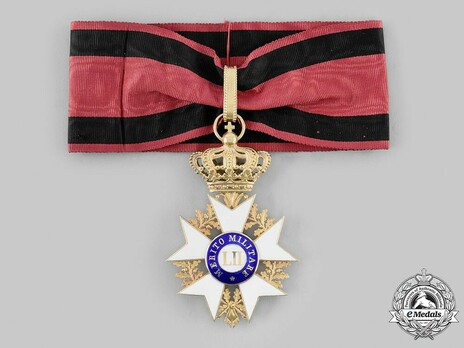
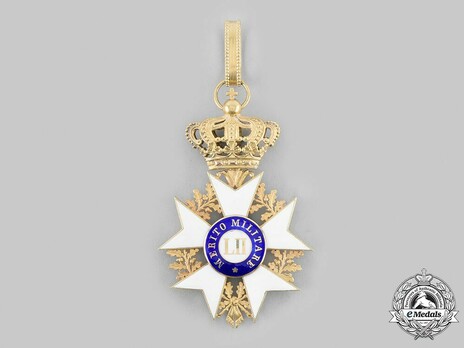
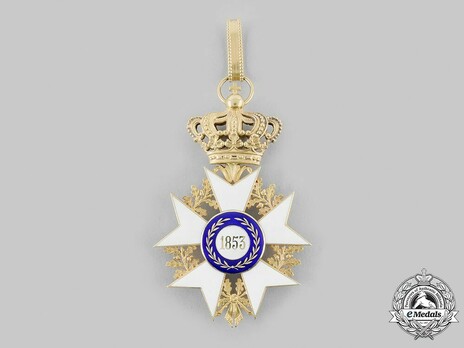
Estimated market value:
(Ordine Militare d'Italia). Instituted on December 19, 1853 by Leopold II, Grand Duke of Tuscany. A suberb 14kt Gold badge of Austrian manufacture, consisting of a white enamelled five arm cross with segments of a delicately crafted oak leaf wreath in each quadrant joined by a ribbon at 6 o’clock, the obverse center medallion presents a white enamel field with LII (Leopold II), surrounded in a blue enamel surround inscribed MERITO MILITARE (Military Merit), the reverse medallion presents a white enamel field inscribed 1853 in a blue enamel surround featuring a Gold wreath, surmounted by a royal crown with a cross adorned horizontally pierced ball, suspended from a round suspension ring connected to a double barrelled oval ring with pebbled edges, measures 53.14mm (w) x 81.69mm (h – inclusive of cross adorned integral ball), weighs 31.7 grams (excluding ribbon), partially hallmarked on the suspension ring with a Vienna 1872-1922 gold quality of 580/1000 mark, along with a makers mark F.R denoting manufacture by Rothe, worn on a correct replacement neck ribbon, all enamels intact, small scratches to white enamel arms on obverse, otherwise better than extremely fine condition.
The Tuscan Order of Military Merit was founded by Leopold II, Grand Duke of Tuscany, on December 19, 1853. It was awarded to foreigners and Tuscan citizens in recognition of extraordinary military service to the Duchy of Tuscany and its Duke.
The Order was originally established with three classes: I Class Knight, II Class Knight, and III Class Knight. The two first Classes were made of gold, while the third Class was made of silver.
Ferdinand IV, the last Grand Duke of Tuscany, amended the Order Statutes in 1861, expanding the Order to include five grades (Grand Cross, Grand Officer, Commander, Officer, and Knight), and creating the Civil Merit division. He amended the Order a second time in 1862, adding the Medal of Merit in Gold, Silver, and Bronze grades. These new grades were reserved for Gentlemen and Officers.
This Order was officially abolished in 1860 when Tuscany was annexed into the Kingdom of Sardinia.
The Grand Duke of Tuscany was the Grand Master of the Order.
Upon the death of the recipient, the decoration was returned to the Secretary of the Order.
The Commander features a gold-coloured surmounting crown, and it was generally restricted to Officers. If the Commander was conferred upon a civilian they were bestowed with personal nobility.
The Commander is also known as the Knight II Class.

Comments
Sign in to comment and reply.
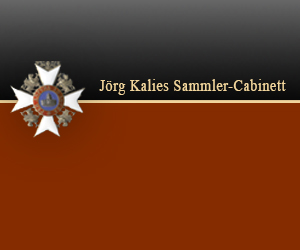
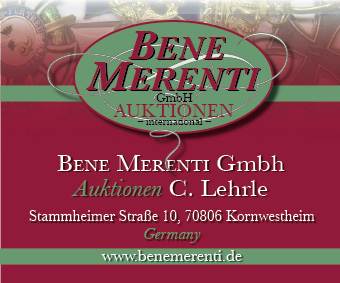
Scroll Top